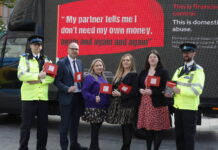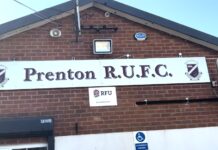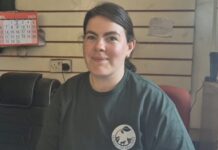
Around half of female university students have experienced sexual abuse or harassment on a night out, according to shocking new research.
The figure was revealed by RASA, a group that works across Merseyside to offer support and provide services for victims of sexual abuse.
The group aims to reduce the stigma around women reporting sexual abuse or harassment that they may have experienced, while offering consistent and life-long support to those who have been affected.
Victoria Green of RASA said that the group aim to look at where women might be vulnerable or have experienced sexual harassment in the city
One of the most shocking statistics that came out through the group’s research was that half of female university students had experienced sexual abuse or harassment in the night time economy.
RASA say that these statistics are not a surprise, with freshers’ week and Christmas the most common periods for incidents to occur.
The charity argues that men need to think their actions and behaviours when out and about to make women feel more safe.
Victoria said: “I think one of the biggest things that men can do is call out other men’s behaviour, be mindful that if you’re walking behind a women they might feel a little bit uncomfortable.
“I mean we absolutely know that males experience sexual violence, 14% of our referrals are males.
“But what women say is they want male intervention, safe intervention, just checking if people are ok If they need any help or support.”
girls and women feel unsafe at night
Victoria said they were not necessarily asking men to get directly involved, but to report it to someone else. A campaign called ‘Don’t be that Guy’ is a really good initiative which works on men calling out other men for their inappropriate behaviour.
She added: “We basically look at trends and patterns of sexual crimes in the city, and then we put in strategic plans to try and prevent it or to try and ensure that people are getting the right level of support, raise awareness.
“So one of our most recent things that we got the funds that we got to look at better lit areas, better transport in the city centre as a result of girls and women feeling unsafe at night or on public transport.”
Over the past 18 months the charity has provided over 10,000 hours in counselling with clients and nearly 15,000 in face to face discussions.
The charity believes that if victims are able to talk about their experiences, then it helps them put a plan in place for them to move forward.
However, the onus is not solely on the victim, with various campaigns and initiatives targeted at staff on public transport and people in general about how their behaviour can make women feel more safe, and what to do in a situation where a women may experience harassment.
Victoria explained: “We do campaigns, whether it’s putting the responsibility on the perpetrator or raising awareness as to where the victim can get support. We have trained bus drivers and taxi drivers around dealing with disclosures as-well as misogynistic behaviour.
“A theatre company is currently doing a production centred around sexual harassment in the workplace which will be delivered to professionals.
“With bus drivers we work on bystander intervention and we will also put money into the CCTV and lighting areas of places that are perhaps not as well lit.
“We are also aim to educated people on the trains about their behaviour and how they should respond if an incident were to take place.”










